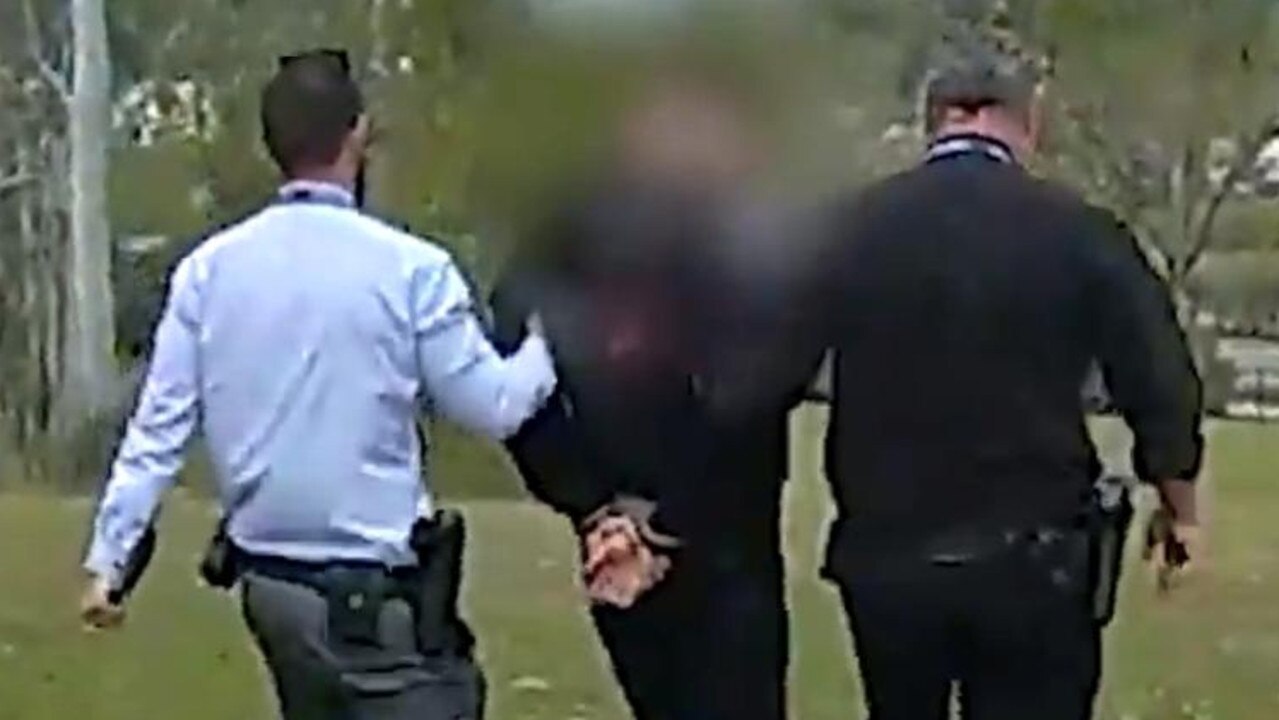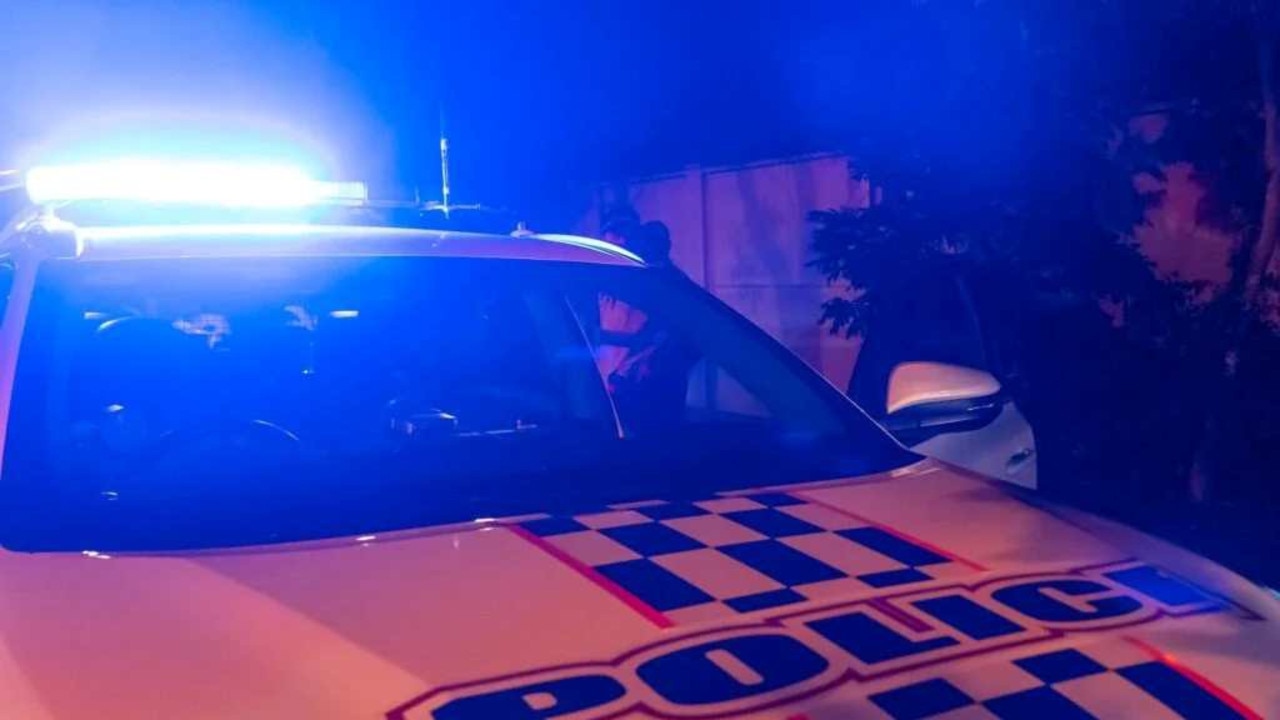Katarina Carroll faces Police DV inquiry: Vile racism, t*t inspections, rape and sex attack on police chief
The DV inquiry has heard explosive claims of racism, sexism and misogyny while Commissioner Katarina Carroll has spoken of her own sexual assault at the hands of a ‘predator’ colleague.
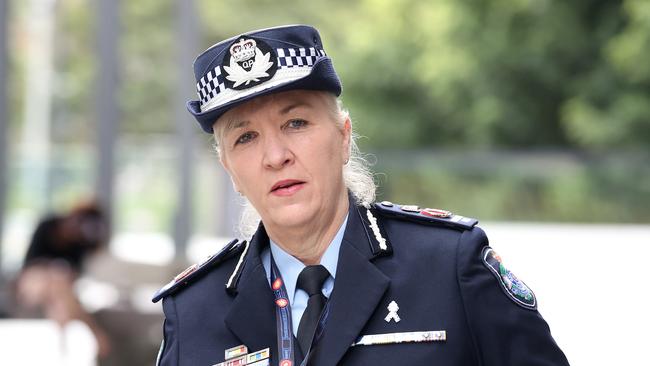
Police & Courts
Don't miss out on the headlines from Police & Courts. Followed categories will be added to My News.
Commissioner Katarina Carroll has given emotive evidence about being sexually assaulted and harassed early in her career amid explosive claims of racism, rape and misogyny at the Queensland DV inquiry.
The inquiry has today heard of incidents of bullying and racial vilification of police liaison officers, and an explosive dossier in which female officers spoke of being called a “sl*t” and “lesbian”, and subjected to ‘t*t inspections.
One officer in the dossier revealed that she was a rape victim and knew of at least five women in the job who had been raped.
The inquiry was also told it was a ‘bad look’ to attempt to discipline the widow of slain police officer Brett Forte.
Ms Carroll, returning to the witness box today, said she was mistreated on multiple occasions in the 1980s and 1990s and that she had made complaints about some of the incidents, but not all.
“A number of times throughout my career, what happened to these women and other women, exactly happened to me,” she said of evidence heard in the Commission of Inquiry into Queensland Police Responses to Domestic Violence.
She said the first occasion she made a complaint about another officer was early in her career when a senior officer told her she should not be a police officer because she was a woman.
“It was about a senior officer telling me I didn’t deserve to be in the job, I was taking a job off male colleagues,” Ms Carroll said.
She said her complaint was dealt with and that officer never made a comment like that again.
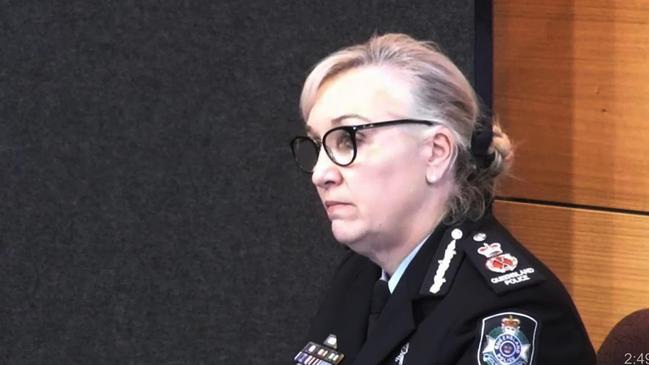
On another occasion, Ms Carroll said she was targeted by an officer she referred to as a “predator”.
“I was pretty well attacked by what I’d say was a sexual predator,” she said.
“He took me to a forest and started taking my seatbelt off.”
An emotional Ms Carroll said she ran back to her station and was protected by her male colleagues at that station.
“I just wanted to say that my station protected me,” she said.
She said another officer “pinched me on the arse” on several occasions but again “the men in that station protected me”.
She said the occasions where she did not report incidents of touching or harassment it was because her male colleagues protected her and she felt as though she was in a safe environment.
INVESTIGATION OF BRETT FORTE WIDOW A ‘BAD LOOK’
The Commissioner of the Inquiry into Queensland Police Responses to Domestic Violence told Ms Carroll it was a “bad look” and “should never have happened” that attempts were made to discipline the widow of murdered police officer Brett Forte.
The inquiry was told Senior Constable Susie Forte and Brett’s police partner, Senior Constable Cath Nielsen were investigated for failing to report misconduct after they made allegations at the inquest into his death.
But Commissioner of the Inquiry, Deborah Richards, said “thankfully Ethical Standards Command put a stop to that charge”.
“Very harsh to charge someone who’s lost their husband with failing to report (misconduct) and that should never have happened, should it?” Ms Richards said.
Ms Carroll agreed.
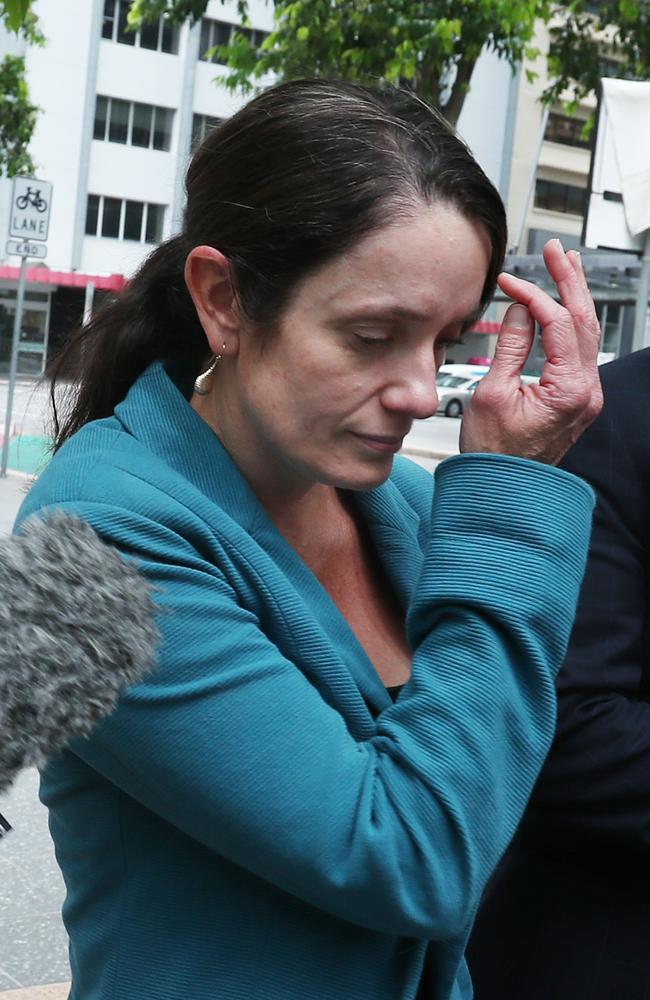
Senior Constable Brett Forte was murdered by crazed gunman and domestic violence offender Ricky Maddison in 2017 in an ambush on the outskirts of Toowoomba.
Both Susie and Sen Const Nielsen have claimed they were bullied when they asked questions about whether his death could have been prevented.
Ms Richards said pursuing victims of crime with disciplinary action “contributes to a fear of making complaints because sometimes people get charged with not making the complaint in the first place”.
“Yes, it is an issue,” Ms Carroll said.
“It is a bad look to charge a victim with failing to report misconduct … that’s something that should never happen,” Ms Richards said.
“Definitely,” Ms Carroll said.
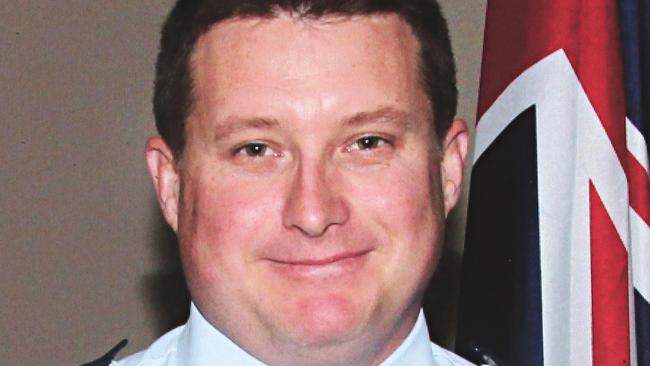
“Has anyone spoken to the investigator who thought it was a good idea to do that?” Ms Richards asked.
Ms Carroll said she did not know.
“Because victims of crime are protected by legislation as well,” Ms Richards said.
“Yes,” Ms Carroll said, agreeing that both Susie and Sen Const Nielsen were victims of crime.
“Extremely ill-advised at the very least for (Detective Senior Sergeant Fiona) Hinshelwood to charge those two women,” Ms Richards said.
“On the face of it, your honour,” Ms Carroll said.
‘Vagina whisperer’ cop subject of CCC probe
The inquiry was told that former deputy Commissioner Paul Taylor was subject to a Crime and Corruption Commission investigation relating to financial matters.
Mr Taylor resigned from the service after it emerged he’d referred to a gynaecologist friend as a “vagina whisperer” at a leadership conference in April 2022.
Asked why she disciplined him only with local managerial guidance – which involves a conversation with a more senior officer – Ms Carroll on Wednesday said it was because she expected he would suffer more serious consequences relating to a separate complaint.
She said she expected the second complaint would be resolved very quickly but it still hadn’t by the time she gave evidence at the inquiry in August.
Mr Taylor resigned the day after the “vagina whisperer” comment was made public.
Ms Carroll said she said she believed the outcome of the other complaint would be “much more serious”.
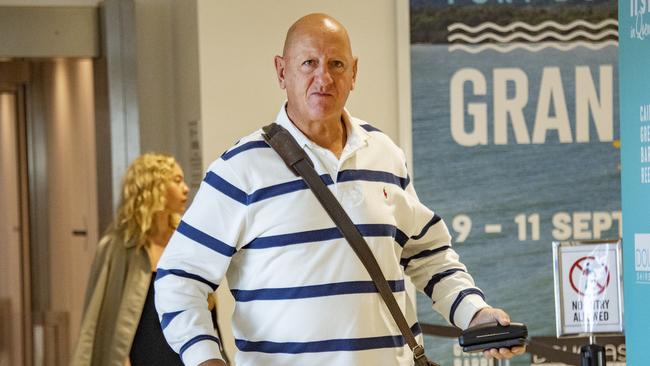
Ms Carroll agreed that the second complaint could have resulted in Mr Taylor being dismissed from the service.
She said she spoke to Mr Taylor on the day of the inquiry hearing in August where information about his conference comments emerged.
“Straight after the hearing we had a quick conversation in my office,” Ms Carroll said of the meeting.
“I said to him ‘Paul this is damaging to you and for the organisation’.
“And he said ‘I should resign’.
“And I said ‘I completely agree with you’.”
Ms Carroll said she would have asked him to resign if he hadn’t offered his resignation.
Coming back to the issue on Thursday, Ms O’Gorman asked the Commissioner that in hindsight would it have been better to deal with the managerial guidance differently and allowed Mr Taylor to apologise to which Ms Carroll agreed.
The inquiry was told the Crime and Corruption Commission had investigated a matter relating to Mr Taylor.
It had found three breaches of discipline for financial matters, Ms O’Gorman told the inquiry.
She said none of the conduct amounted to corrupt conduct and the matter was not related to sexism or misogyny.
The CCC found his conduct didn’t relate to disciplinary action for dismissal, Ms O’Gorman said.
Domestic violence command desperate for more staff
Ms O’Gorman told the inquiry that staff within the QPS domestic violence command had been interviewed by them and multiple officers said more staff were needed.
The DFV command was established in February 2021 after the DV death of Doreen Langham and Assistant Commissioner Brian Codd was appointed as its head.
She said a superintendent had told them the command was under resourced and had been present in meetings with Domestic and Family Violence Command Assistant Commissioner Brian Codd who had asked for more resources.
The superintendent said 11-12 further positions would help.
An inspector, an acting senior sergeant and other staff had told the inquiry more resources were needed.
The inquiry was told one person alone had been working on a new DV manual for frontline officers, and had support of a project officer.
Ms Carroll said when she first met about the DV command she “could not be more clear that any resources were required would be given to the command”.
“Everything that AC has asked for … has been approved,” Ms Carroll said.
Ms Carroll said she had “never been approached for more resources into that command” and all staff requested through systems had been approved.
“And I completely agree with every one of these people. What happens when you don’t have enough resources to be strategic, you are actually quite reactive,” Ms Carroll said.
The police Commissioner said she had asked an external consultant to look at the command to give advice on staffing levels about three weeks ago.
Ms O’Gorman said why would Ms Carroll not instead listen to Mr Codd who was head of the command.
Ms Carroll said she needed to be told exactly how many staff were needed and what they were going to do by Mr Codd.
In April 2021 Mr Codd and acting Superintendent Ben Martain gave a presentation to the executive leadership team. Ms O’Gorman said under-resourcing of the QPS and command was specifically raised by the two officers.
Ms Carroll said the conversation was mostly about lack of resources for vulnerable persons unit and didn’t recall under resourcing of the command being raised.
“No because I would’ve said like I did at the beginning, ‘anything you want you get’,” Ms Carroll said.
“Because that has always been my view on the DV command.”
Ms Carroll said she would have definitely reacted to the issue if it was raised with her.
Ms O’Gorman said there was a difference between approved staff and actually having staff provided.
“You can urgently ask for additional resourcing and if it comes directly to me, which I have approved in the past very quickly, that can happen,” Ms Carroll said.
Ms O’Gorman asked if was not possible for her to have a direct conversation with Mr Codd about staffing.
Ms Carroll responded: “Yes I can. And I have already asked him ‘anything you want’. And nothing has come back to me.”
Ms Carroll was questioned about why she never “took the elevator two floors down” to speak to the head of the Domestic Violence Command about severe understaffing.
The inquiry has been told that Assistant Commissioner Brian Codd made repeated requests for more permanent staff but Ms Carroll has argued that she was not given a specific request for positions and was not given an urgent request.
Ms Carroll said she said to Mr Codd after he attended the inquiry with her in August that he could have the staff he needed.
“I said to the Assistant Commissioner as I walked out the door, you know, anything you want, you can get,” she said.
“I cannot be more proactive in telling someone that.”
Ms Carroll said she had not visited the command because of “horrendous, horrendous times” in respect to the coronavirus pandemic, but that didn’t mean domestic violence wasn’t incredibly important to her.
But Ms O’Gorman said domestic violence victim Doreen Langham – the murder that sparked the creation of the command – died in February 2021 and “I am wondering why it’s taken to this year for you to go two floors down”.
Ms Carroll said she had met with Ms Langham’s daughter to “personally apologise” for the police response to her calls for help.
“I can walk out of here and the Assistant Commissioner can tell me what positions they need today and I can make those positions temporarily available within the next few days,” Ms Carroll said.
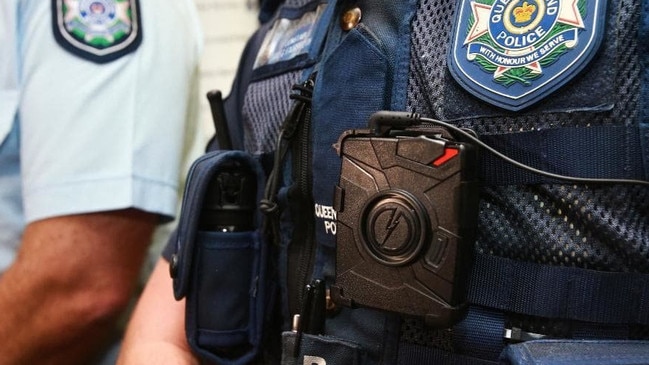
Police liaison officers bullied, racially vilified
Counsel assisting the inquiry, Ruth O’Gorman KC detailed a list of incidents in which police officers made racist comments or bullied and mistreated police liaison officers.
In one case, she said a female sergeant based at the academy late last year told a group of recruits she was teaching that you “can smell them before you can see them” in relation to First Nations people.
Ms O’Gorman said the inquiry requested audio of that incident and it was provided this morning.
But Ms Carroll confirmed she had listened to it and described it as “extraordinarily disturbing”.
She said the sergeant “should not be in that role because I expect her to live by the values of (the QPS)”.
Ms O’Gorman told the inquiry no complaint was made about the officer’s comment, adding that those new police officers entered the job having “in the back of their mind that a sergeant told me that you can smell First Nations people before you can see them”.
Ms O’Gorman put to Ms Carroll that it was impossible to quantify “the damage done” when teachers at the academy acted in that manner.
The inquiry was told the female sergeant had “been moved” and that there was an investigation underway.
Ms O’Gorman said submissions received by the inquiry included incidents where police officers had referred to Indigenous people as “black c…”, “stupid black c …” and “lazy black c…”.
Other incidents included police officers being called “c..n lovers” by colleagues and one case where an officer said “we should just napalm Aurukun”.
Another said: “We should sack all the PLOs (police liaison officers) and put the money into more police.”
Others complained that police liaison officers “stink out” patrol cars.
“It has been brought to my attention obviously and it’s absolutely disgusting,” Ms Carroll said.
The inquiry was told about an Ethical Standards Command investigation where an officer in charge responsible for supervising 13 police liaison officers was accused of bullying and unprofessional conduct.
The inquiry was told the officer was accused of swearing at his staff, using obscene language, threatening their job security and said “if it wasn’t for them (the police), they’d still be driving taxis”.
Ms O’Gorman said the police liaison officers had never been taxi drivers.
She told the inquiry senior police referred the officer’s conduct for disciplinary action but instead it was dealt with by local managerial guidance.
Commissioner: ‘I know I have racist people in the organisation’
The inquiry heard an Indigenous sergeant wrote to the Commissioner in September this year saying he was going to leave the QPS after 26 years and spoke of the “cultural fatigue” and burnout, relating to the personal experiences of racism and discrimination he had seen through his career.
He said racism continued to thrive in the service, that no one Indigenous had ever reached a rank above inspector and there had always been a genuine sense of fear and reprisal about reporting racism.
The inquiry was told in August 2020, Ms Carroll and deputy commissioners met with Indigenous officers to hear their shared lived experiences of racism within the service.
They shared their experiences of racism over the years. Ms Carroll today told the inquiry hearing the stories caused her grave concerns.
A month later an Indigenous woman died in police custody.
Ms Carroll held a press conference, stating the death was of natural causes.
During the conference she said police were in “no way racist”.
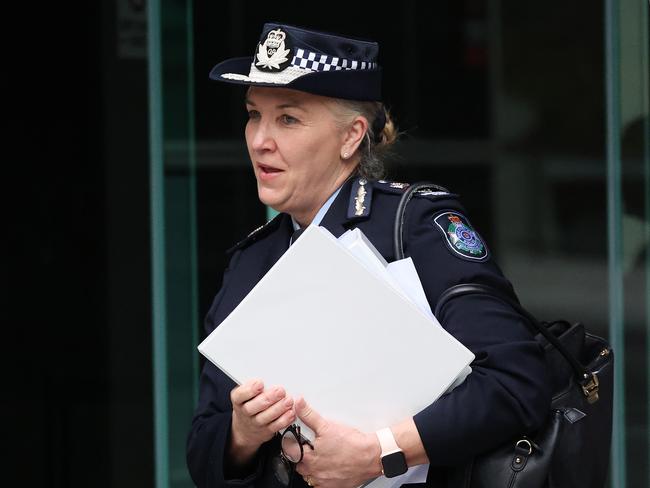
Ms O’Gorman asked Ms Carroll if she accepted it would have been an “absolute slap in the face” to Indigenous officers she had spoken to a month earlier to hear her say that comment.
Ms Carroll said she was speaking about the entire service when she made the comment.
“That is saying that 17,500 members of the QPS are racist,” she said.
“That is speaking on behalf of 17,500 people who are watching me.”
Inquiry Judge Deborah Richards said Ms Carroll knew there was racism in the service.
“You had been told that a month before,” Judge Richards said.
“And you stand up and say ‘we are in no way racist’. You knew that was not true Commissioner,” she said.
Ms Carroll told the inquiry that in the press conference she went on to say that a few officers might do and say the wrong thing.
“I know I have racist people in the organisation,” Ms Carroll said to the inquiry.
Ms Carroll accepted that she could have used better wording when speaking at the press conference.
“When I look at the benefit of hindsight I would have reframed it because I know and did know we have racist people in the organisation,” Ms Carroll said.
Ms O’Gorman told the inquiry that the Queensland Police Service last September established a First Nations reference group that’s purpose was to advise Ms Carroll on reform and decision making around First Nations issues.
She said the service approached esteemed community members and asked them to be part of the group on an unpaid basis.
“That group considers they have not been treated well by you or the organisation since its inception,” Ms O’Gorman said.
Ms O’Gorman told the inquiry the group was upset Ms Carroll did not meet with them when they asked.
The group was also promised a meeting with the executive leadership team by February this year, as well as a public announcement of their existence at the same time.
Ms O’Gorman said neither of those things happened.
Ms Carroll said those deadlines were missed at a time when the service was coming out of its Covid response but was dealing with a major flooding event.
Ms O’Gorman told the inquiry police, after inviting those group members to take part, raised issues about whether they may not represent a large enough geographic area of Queensland.
She said the inquiry had determined the group did, in fact, “represent communities right throughout the state”.
The inquiry heard the group later met with a Deputy Commissioner but only had a draft terms of reference a year after being established.
Ms O’Gorman also told the inquiry that Ms Carroll had upset an elder at a NAIDOC flag raising event by failing to acknowledge them.
She said the group had asked to be invited to the event but was told they didn’t need an invite, they could “just attend”.
Explosive dossier of sexism and misogyny
The inquiry was told a senior women’s collective within the service compiled a dossier of lived experiences of sexism and misogyny in 2017 and 2018.
In 2018 the executive leadership team of the most senior officers in the Queensland Police Service was handed the dossier which had accounts from women who had spoken out about their experiences in the hope that it would lead to organisational change in the service.
One officer in the dossier, who said she was a rape victim, knew of at least five women in the job who had been raped.
She said she had been called a “sl*t” and “lesbian”, had cans placed in her crutch to “make sure she wasn’t hiding anything”, had been touched on the bottom, had her bra undone, had hands put down her front and told to pull up her shirt for a “t*t inspection”.
She said she had been kissed in ways that were unwanted and referred to as frigid for “not putting out for the boys”.
On an away job she was told to lock herself in the car because interstate police had bought cartons of beer and another officer was worried about her. When she woke there were drunk men licking dew off the car.
On another occasion she said another officer questioned if they had to be “precious” around her because she claimed to have been raped.
She said the officer had said “f**k, must’ve been a dumb ugly c**t to rape you”.
High hopes dashed as taskforce proves a ‘toothless tiger’
Ms O’Gorman told the inquiry that the Queensland Police Service established Task Force Juniper in April, 2019.
She said Juniper’s role was to eliminate a culture of gender inequality and tackle sexual harassment within the service.
“Many women in the QPS must have had high hopes of Juniper,” Ms O’Gorman said, adding that it “didn’t last long” and was decommissioned in September 2020.
Ms O’Gorman said a review of Juniper found most police considered it a “toothless tiger”.
She said the fact that so many matters were being dealt with by local managerial guidance “made it seem like nothing changes” to the women seeking help.
Ms O’Gorman said in December 2020, Juniper was “rebranded” to two operational units within the police.
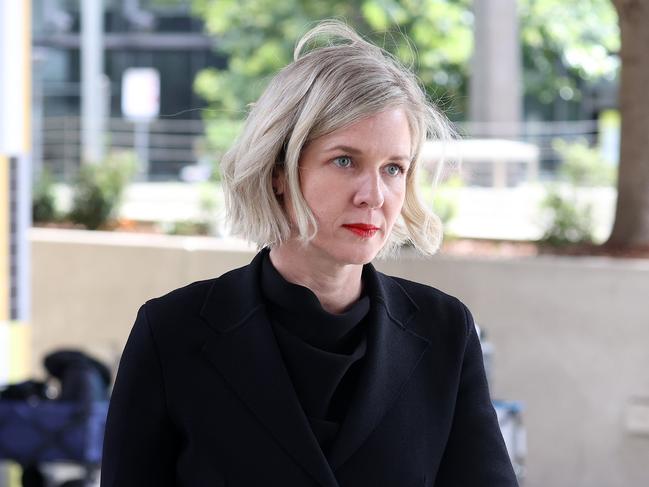
She said both of those units remained understaffed.
“I was passionate about doing the reform work,” Ms Carroll said.
But she said the units were hampered by police being sent to manage borders during Covid lockdowns.
Ms O’Gorman said both units still needed “significant improvement” today.
“For the women who have been waiting for quite some time to see evidence of organisational change … do you accept to date the organisation has not achieved that?” Ms O’Gorman said.
“I agree … women have told me that,” Ms Carroll said.
The inquiry was told of Working for Queensland survey responses for the police service in 2021.
In 2021 only 55 per cent of organisation considered gender was not a barrier to success in the organisation. Compared to the public sector it was 14 points lower.
When responding to the proposition that gender was not a barrier to success in the organisation, 55 per cent agreed. It was 12 points below the Queensland public sector.
Asked if recruitment and promotions decisions in the organisation were fair only 25 per cent believed it to be a true statement, which was 13 points below the public sector.
Only 50 per cent of the organisation believed if they raised a complaint they were confident it would be taken seriously, six points below the public sector.
Less than 50 per cent of respondents believed the leadership operated with a high level of integrity.
Ms Carroll confirmed it was concerning to her as the leader of the organisation.
Counsel assisting the inquiry Ruth O’Gorman KC questioned Ms Carroll if she accepted there was an extensive problem with misogyny and sexism in the service.
Ms Carroll responded: “Extensive in some areas. Not extensive in all areas.”
Ms Carroll said she accepted she may not know the full extent of the issue in the service and more work needed to done to fix the issue.
Police chief’s explosive return to DV inquiry
Yesterday Counsel assisting Ruth O’Gorman said the inquiry had requested two years of data from the Queensland Police Service on complaints against officers of threatening, harassing and bullying behaviour.
The inquiry was provided with data showing 1676 complaints were made against 738 members of the QPS.
She said the data related to complaints made between June 30, 2020 to June 30, 2022.
Many of those complaints related to sexist, racist, misogynistic and homophobic behaviour.
Ms Carroll also told the inquiry Deputy Commissioner Paul Taylor was facing a second complaint that could have led to his dismissal when he was disciplined for making inappropriate comments at a conference.

